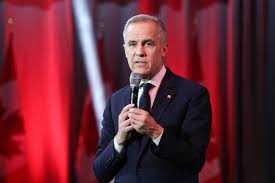Exploring path to reset ties: MEA on Modi-Carney G7 meet next week

As the G7 Summit approaches, scheduled to take place in Kananaskis, Canada, all eyes are on an anticipated meeting between Indian Prime Minister Narendra Modi and his Canadian counterpart, Prime Minister Mark Carney. The meeting, which India’s Ministry of External Affairs (MEA) has termed an opportunity to “explore the path to reset ties,” comes at a critical time for both countries.
This high-profile encounter is expected to open a fresh chapter in India-Canada relations, which have remained frosty since 2023 due to allegations made by Canada regarding Indian involvement in the killing of Sikh separatist Hardeep Singh Nijjar. The allegations triggered a diplomatic standoff, leading to expulsions of diplomats and the suspension of key bilateral dialogues. Now, with new leadership in Ottawa and a shift in tone from both sides, there is cautious optimism that this meeting could serve as a turning point.
A Strained History Revisited
The diplomatic strain between India and Canada escalated dramatically after Canadian authorities, under former Prime Minister Justin Trudeau, accused Indian agents of involvement in the killing of Nijjar—a Canadian citizen and vocal proponent of Khalistani separatism. India strongly denied the allegations, calling them “politically motivated” and lacking evidence.
The controversy snowballed into a full-blown crisis, with both nations expelling senior diplomats, suspending visa services, and halting trade negotiations. Public opinion in both countries grew increasingly polarized, as Canada insisted on pursuing its investigations while India demanded that Canada crack down on extremist elements operating within its borders.
The relationship remained in limbo for months, with minimal communication at official levels. However, the recent change in leadership in Canada—with Mark Carney taking the helm—has presented a potential path to thaw tensions.
G7 Summit: A Diplomatic Opportunity
Carney’s invitation to Prime Minister Modi to attend the G7 summit was seen by analysts as a calculated and symbolic gesture. While India is not a G7 member, it is often invited as a guest due to its growing geopolitical importance. For Carney, extending the olive branch signals a willingness to move past last year’s hostilities in favor of constructive engagement.
MEA spokesperson Randhir Jaiswal has indicated that India views the summit as a chance to “explore pathways to reset the relationship,” emphasizing the importance of mutual respect and sensitivity. While officials have not confirmed whether a formal bilateral meeting is on the agenda, there is growing speculation that Modi and Carney will engage in at least informal discussions on the sidelines.
Shared Interests, Common Goals
Despite their differences, India and Canada share a range of strategic and economic interests that neither side can afford to ignore. Trade, education, clean energy, and diaspora ties are just some of the key pillars underpinning the bilateral relationship.
Canada is home to over 1.4 million people of Indian origin, making it one of the largest Indian diasporas in the world. This community plays a vital role in Canadian politics, culture, and economy. At the same time, Canadian universities attract tens of thousands of Indian students each year, making India one of the top source countries for international education in Canada.
Economically, both nations are keen to diversify their partnerships. For India, Canada represents a stable investment destination with rich natural resources and innovation in clean technology. For Canada, India’s rapidly growing economy, now the fifth largest in the world, offers vast opportunities in sectors like agriculture, digital technology, and infrastructure.
Security Cooperation and Challenges
Security is expected to be a central topic of discussion if Modi and Carney meet. India has repeatedly raised concerns over the presence of pro-Khalistani elements in Canada, urging Ottawa to take stronger action. Canadian authorities, meanwhile, continue to investigate the Nijjar case and emphasize the importance of the rule of law and democratic freedoms.
While both sides have maintained differing perspectives on these issues, there are signs of behind-the-scenes cooperation. Sources suggest that law enforcement agencies from both countries have continued limited communication to share intelligence and maintain baseline coordination on transnational threats.
A Difficult Yet Necessary Reset
Analysts caution that while the summit presents an opportunity, a full reset will not happen overnight. The issues dividing India and Canada are complex, politically sensitive, and closely tied to national identities. However, both sides appear to recognize that sustained hostility benefits neither.
The G7 platform offers the chance to look beyond bilateral grievances and focus on global challenges like climate change, cybersecurity, economic resilience, and democratic governance—issues where India and Canada have significant common ground.
Looking Ahead
As the G7 summit nears, the world will be watching to see whether the Modi-Carney meeting translates into tangible progress. Even a symbolic handshake or informal exchange would be a powerful message that both nations are ready to engage in dialogue, however cautiously.
For India and Canada, the path forward lies in balancing national interests with diplomatic pragmatism. If the leaders can set a new tone, backed by real policy-level engagement, this meeting may well mark the beginning of a new chapter in a historically rich, though recently troubled, partnership.






